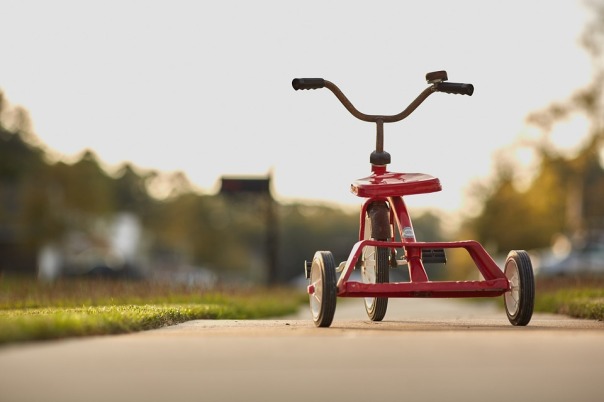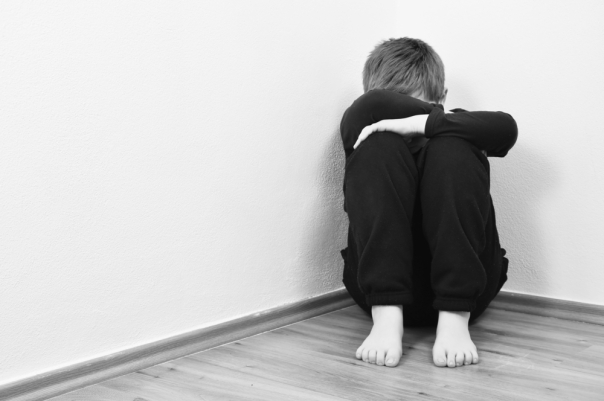Category Archives: Uncategorized
Equitable Distribution at the Dissolution of Marriage in Florida

Photo by rawpixel.com on Pexels.com
Divorce is always a hard topic. Even if there are not children involved in the marriage, spouses must divide their belongings and assets earned during the marriage as they part ways.
In the state of Florida, we have what is called an “Equitable Distribution” of assets and liabilities acquired during the marriage. This basically means that any marital property will be equally distributed after a divorce. These include assets acquired jointly by the spouses during the marriage; enhancements of non-marital property due to the efforts of a spouse; jointly titled property, even if it was acquired as non-marital property; gifts from one spouse to another during the marriage; and joint bank accounts.
Just as assets are divided, so must liabilities. A marriage between two people can have many benefits and successes, but also comes with risk and sometimes failures. Equitable Distribution covers both sides.
The Process of Dividing Through Divorce
During the divorce process, the first consideration is always the dependent children, if there are any. The court will handle issues of custody and child support prior to the equitable distribution of property. After the children are taken care of, the court will award each party their non-marital property, or items that were acquired before the spouses were legally married. However, it’s important to note that non-marital property can become marital property, as in the example of a spouse’s name being added to the title of a property owned by the other spouse before the marriage.
An example of non-marital property could be a personal bank account that is only in one spouse’s name that was opened prior to the marriage and not used for marital expenses.
The equitable distribution of properties acquired during the marriage will follow the non-marital assets. After the equitable distribution of property, the court will determine alimony, if any is awarded.
What Does the Court Consider?
According to Chapter 61 of Florida Statutes, which discusses equitable distribution. The following items are considered by the court when dividing the marital assets and liabilities. Some items may be awarded in a larger percentage to one spouse over another depending on “competent and substantial evidence” of the lawyer of that spouse.
(a) The contribution to the marriage by each spouse, including contributions to the care and education of the children and services as homemaker.
(b) The economic circumstances of the parties.
(c) The duration of the marriage.
(d) Any interruption of personal careers or educational opportunities of either party.
(e) The contribution of one spouse to the personal career or educational opportunity of the other spouse.
(f) The desirability of retaining any asset, including an interest in a business, corporation, or professional practice, intact and free from any claim or interference by the other party.
(g) The contribution of each spouse to the acquisition, enhancement, and production of income or the improvement of, or the incurring of liabilities to, both the marital assets and the nonmarital assets of the parties.
(h) The desirability of retaining the marital home as a residence for any dependent child of the marriage, or any other party, when it would be equitable to do so, it is in the best interest of the child or that party, and it is financially feasible for the parties to maintain the residence until the child is emancipated or until exclusive possession is otherwise terminated by a court of competent jurisdiction. In making this determination, the court shall first determine if it would be in the best interest of the dependent child to remain in the marital home; and, if not, whether other equities would be served by giving any other party exclusive use and possession of the marital home.
(i) The intentional dissipation, waste, depletion, or destruction of marital assets after the filing of the petition or within two years prior to the filing of the petition.
(j) Any other factors necessary to do equity and justice between the parties.
In an amicable divorce, both parties will sign a “Marriage Settlement Agreement” (MSA), which will lay out exactly how everything will be divided after the dissolution of the marriage. However, in many cases, this process will be handled in mediation or by a judge.
Courts will be as equal as possible when dividing assets and liabilities at the end of a marriage, but a competent family attorney may be able to help a spouse recover exactly what he or she is owed. If you are facing a divorce, contact a family attorney as soon as possible in order to assist you through the distribution of property earned over the course of your marriage. The Spatz Law Firm is here to answer your questions. Please give us a call at 305-442-0200.
References:
A Seven-Step Analysis of Equitable Distribution in Florida Part 2: Distributing Marital Property. (n.d.). Retrieved from https://www.floridabar.org/news/tfb-journal/?durl=/DIVCOM/JN/jnjournal01.nsf/Articles/8323D0F2AB6652FB85256ADB005D627A
Equitable Distribution in Florida Dissolution of Marriage – Florida Divorce Source. (n.d.). Retrieved from https://www.divorcesource.com/ds/florida/equitable-distribution-in-florida-dissolution-of-marriage-3703.shtml
Legal Guardianship for Adults

Most adults are responsible for themselves when it comes to legal matters. Once you are a legal adult, you can make decisions based on the law in cases of money or property without someone else making those decisions for you. However, if an adult in the state of Florida becomes incapacitated due to injury or illness, there are measures set in place to ensure that someone will become responsible for the legal rights of the incapacitated person. In Florida, a guardianship is a legal proceeding where someone is appointed to make decisions and handle the legal matters of a person who becomes incapacitated, otherwise known as a “ward.”
How & Why is a Guardian Appointed?
If an adult becomes incapacitated, that means that he or she has been judicially determined to lack the capacity to manage their property, legal matters, and issues related to health and safety. A court can determine that someone is entirely or partially incapacitated depending on the findings of an expert committee.
Anyone can file a petition to the court stating that the incapacitation of another deems him or her eligible for a legal guardian, but it is up to the court to decide and enforce guardianship. Once a petition has been filed, a committee of three expert members is formed to review the case of the potential ward, which includes a physical, mental, and functional assessment. This committee is usually made up of two physicians and another expert in the condition of the person in question. The committee will submit a report to the court with these findings related to the capacity of the individual.
After the report is presented to the court, a judge will decide if a person is wholly or partially incapacitated, if at all, based on the factual evidence discovered by the committee. If someone is deemed to be in full capacity of him or herself, then the judge will throw out the petition for guardianship.
Who Can Be a Guardian?
Any adult resident in the state of Florida and some family members outside of the state may be appointed guardian of a ward as long as they have not been convicted of a felony, and are fully capable of handling the duties of being a guardian. A nonprofit entity may be granted guardianship in certain situations, and a bank trust can be appointed guardian of an individual’s property.
What Does a Guardian Do?
Ultimately, the court will decide what the ward is incapable of doing and assign the rights and responsibilities to the guardian. A guardian will be required to report regularly on the property and health of the ward. He or she will also be responsible for the medical, mental, and personal care of the ward, as well as determining the best place for the ward to live depending on the requirements of the court.
A guardianship does not have to be a permanent arrangement, as some wards may recover and become capable of exercising their own rights after some time. In this case, the court would conduct another assessment to determine whether the ward has recovered from their incapacitation and release them from the guardianship if there is a full recovery.
If a guardianship is petitioned or necessary, it’s important to hire an attorney who is experienced in the area of family law and guardianships. The guardian is also required to have representation by an attorney throughout the process. In legal documentation, the person who becomes the ward can also designate their preferred guardian before an incapacitating event.
References:
Consumer Pamphlet: What Is Guardianship? – The Florida Bar. (n.d.). Retrieved from https://www.floridabar.org/public/consumer/pamphlet030/#WHAT IS A GUARDIANSHIP?
A Recent Case Questions Whether Florida Children Can Have Three Parents

We all know how important the presence of a father is in a child’s life, especially during critical development years. Unfortunately, with the rate of divorce in this country, many children grow up without a steady father figure in the home.
In a compelling case in Florida, one girl is caught in a battle between two men who are vying to be her legal father. One man is the biological father, and the other is the man married to her mother. Now, the case is highlighting a law that says a child can only have two legal parents. However, what if there are three who claim her?
Can there be three legal parents?
Florida law says that a child born into a marriage legally belongs to the husband and wife as the child’s father and mother. However, this doesn’t necessarily take into account the fact that the child may have a separate biological father.
In a recent case, one biological father is fighting in court for the right to have shared custody and parenting rights for his biological daughter who legally belongs to another man.
Legal parents are the ones who have the right to make decisions for the child, and in this case, the biological father is not considered the child’s legal father.
Two lower courts have issued entirely different rulings, in this case, one saying that the biological dad should have some rights, and the other upholding the legal father’s rights. Several people involved with the case have expressed the need for the Florida legislature to modernize the laws surrounding legal parents and paternity. Now, the case heads to the Florida Supreme Court.
Florida Paternity Law
In the state of Florida, if a woman is not married when she gives birth, paternity must be established either voluntarily or by court order. If the mother and father agree on paternity, they may sign a “Voluntary Acknowledgement of Paternity” form, which becomes final 60 days after it is signed, at which time, neither parent can revoke it. The only way this document can be revoked is if either parent can prove in court that it was fraudulently signed, or that extreme force was used to coerce one of the parents to sign.
The following individuals can start the court process to establish paternity: the child’s mother, the “alleged” father, the child through a legal representative, or the Florida Department of Child Services.
Establishing paternity is important not only because every child should have a father in his or her life if possible, but acknowledging a legal father places responsibility on the parents to ensure that the child is taken care of as he or she grows. With paternity established, a judge may make orders for items such as child support and health insurance for the child, how parents should establish parenting time and decision-making authority over the child.
In any situation where paternity is in question or is a matter for the courts, it can be difficult for any family, but especially for the child involved. If you are involved in issues of paternity, it’s essential to contact a qualified family law attorney who can guide you through the court system.
References:
Vasilinda, M. (n.d.). Should Florida children be allowed to have three legal parents? Retrieved from http://www.wjhg.com/content/news/Should-Florida-children-be-allowed-to-have-three-legal-prents-482133051.html
Nolo. (2014, August 14). Paternity in Florida. Retrieved from https://www.divorcenet.com/resources/paternity-florida.html
What is a Bird’s Nest Living Arrangement?

Anytime there is a separation or divorce in a family, lives will inevitably be disrupted, and everyone will go through changes as a new family arrangement is formed. Divorce is hardly ever easy, especially if there are kids involved in a family unit. Most parents hope for a smooth transition and have the best intentions to act respectfully with each other, though it’s often more difficult than first expected.
Parents going through a divorce have many options available to them when it comes to parenting and living arrangements. Every family is different, but the most important thing for all families should be to ensure the long-term stability and security of the children. When developing a legal parenting plan, some former partners may decide to share equal responsibilities when it comes to parenting in an arrangement called shared parenting, or co-parenting. Others may even take it a step further and decide to live in a “bird’s nest” arrangement. Here I’ll explain each concept in a bit more detail.
Co-Parenting
Any couple with children going through a divorce needs to file a Florida parenting plan with their decisions on how they will raise the children. If parents decide to enter into a co-parenting plan, they may also choose to create a separate informal plan with more ways that they will equally split parenting duties. This type of parenting style requires both former spouses to work respectfully with each other and share equal duties when it comes to raising the children. Neither parent is the primary caregiver, nor the visiting parent, but both agree to share in the parenting roles through the duration of the plan.
A co-parenting arrangement is designed to provide minimal disruption in a child’s life, but there has to be a definitive plan. This plan should include items about which parent is responsible for issues related to healthcare, finances, schooling, religion, activities, etc… that the children will be affected by until they are adults. Some examples of questions that should be discussed include:
- Who makes decisions related to medical visits?
- Education choices?
- College saving plans?
- Pets?
Religious activities? - Which parent is responsible for pick-up from school?
Bird’s Nest Living Arrangement
In a co-parenting situation, parents decide to have separate but loving homes while consulting with each other on the most important issues. However, some parents decide to keep themselves separated by rotating in and out of the family home while allowing their children to continue to stay in the same house. Parents may maintain a separate residence outside the home for the parent that is not living with the child in the family home at the time, or they may opt for separate residences altogether. The goal of this type of child-centered living arrangement is to provide the least amount of disruption in the child’s life, as they will not have to be shuttled back and forth to different residences. A bird’s nest arrangement really works best if parents are able to maintain a cooperative and amicable relationship at all times, as they both will still be sharing space at different times when in the family home.
Some things to consider in a situation where parents are sharing a home space on a rotating basis, such as with a bird’s nest co-parenting arrangement:
Expenses
Will the parents each maintain a separate house outside of the main family home, or will they share a space as well? Can the family afford three residences? Who will be responsible for repairs to the home?
Privacy
How will former spouses maintain privacy if they are sharing a family home? Will this affect the second residence as well?
Childcare Duties
Similarly to any parenting plan, which parent will make the major decisions? Will it be the parent who is in the family home at the time, or will all decisions be made jointly?
In any divorce situation where there are children involved, both parents should work toward shielding the children from any major conflicts. Former spouses should make it a priority to communicate clearly and peacefully, especially when children are around. Disruption of some kind will always be a part of a divorce, but when parents have mutual respect and a shared goal of providing for the stability of the child first, an appropriate parenting plan can be established.
With any divorce situation, it’s important to contact an experienced family law attorney. Your attorney can help you develop a legal parenting plan that works for your family.
References:
Chapter 4: Cooperative Parenting Strategies. (n.d.). Retrieved from https://www.floridacoparenting.com/course_sample.html?p=4
“Bird’s Nest” Co-Parenting Arrangements. (n.d.). Retrieved from https://www.psychologytoday.com/us/blog/co-parenting-after-divorce/201307/birds-nest-co-parenting-arrangements
Adverse Childhood Experiences Linked to Adult Health Conditions

New studies released by Kaiser Permanente and the CDC have confirmed that those who suffered from Adverse Childhood Experiences (ACEs) are more susceptible to both physical and emotional health issues later in life.
It’s no surprise that there is a link between early childhood trauma and adult health conditions. When children experience stressors at a young age, their bodies are being hardwired to respond differently to stress for the rest of their lives. “Toxic stress,” or abuse or adversity experienced by children at a young age can heighten levels of stress in their developing bodies, and prime their system to be hyper-sensitive to stress as they age.
There are ways that families and communities can work together to prevent and intervene if a child is experiencing ACEs, and potentially lower the risk of developing dangerous health conditions that he or she may have much later in life.
What are ACEs?
ACEs are fairly common. About 60% of the general population has reported experiencing one or more before the age of 18, and eight percent of the population has experienced four or more.
- These experiences can include:
- Family Substance Abuse—such as an alcoholic or drug-dependent parent
- Parental Separation or Divorce
- Mental Illness in the household
- Physical Abuse Against the Mother
- Criminal Behavior—such as a parent becoming incarcerated
- Psychological, physical, or sexual abuse
Unfortunately, the more incidences of these traumas experienced by children under 18, the higher the risk of developing an adverse health condition later in life.
Link Between ACE and Disease
The studies done by Kaiser and the CDC show that as ACEs go up, so did the onset of conditions such as diabetes, obesity, cancer, heart disease, COPD, and liver disease. Those with higher ACEs also have a higher risk of mental illnesses such as depression or are more likely to attempt suicide. In fact, those with four or more ACEs were 12 times more likely to commit suicide than those without any.
There is also an unfortunate correlation between ACEs and opioid addiction. 80% of those seeking treatment for opioid addiction had at least one form of childhood trauma. Additionally, as the number of traumatic childhood events increased, so did a person’s likelihood to abuse prescription drugs.
Why the link?
When someone experiences a trauma early in life, they are essentially rewiring their system to receive stress differently. It is the Central Nervous System that controls stress in our bodies, and it closely interacts with our immune, hormone, metabolic, and clotting systems. The traumatic experiences become embedded in the bodies of children, altering their physiology across all of these systems, which changes cellular and systemic function as they age. Fundamentally, ACEs are changing the way that the body processes stress, causing it to function differently than a body that has not experienced an ACE.
Resilience can Combat Stress
The best way to ensure that children do not experience ACEs is to provide a safe and nurturing home environment. Families can also triumph over these experiences by understanding how children can be impacted by these events and considering counseling if there have been traumatic events in the child’s life.
Additionally, seeking out community support and resources for parenting and abuse are crucial for families who want to rebuild after traumatic events.
Make sure that your children do not grow up with a higher risk of adult diseases by being a consistent support to your family. If emotional or physical abuse has already occurred or has been a part of the home environment, make sure that your children have support from extended family, friends, teachers, and mentors. By building a culture that is compassionate toward each other, we can do a lot to combat the negative effects of ACEs.
If you, or someone you know, is going through a family matter such as a separation or divorce, it’s essential to seek the advice of an experienced family attorney. Your attorney can help guide you through the legal process and point you toward resources for your family.
References:
Study shows childhood trauma related to chronic health conditions. (2018, April 04). Retrieved April 05, 2018, from https://www.nrtoday.com/news/health/study-shows-childhood-trauma-related-to-chronic-health-conditions/article_667a7b06-0653-5961-8eac-68fb4f0f2b7a.html
Got Your ACE Score? (2017, June 02). Retrieved April 05, 2018, from https://acestoohigh.com/got-your-ace-score/
Madigan, S. (2018, April 05). How compassion can triumph over toxic childhood trauma. Retrieved April 05, 2018, from https://medicalxpress.com/news/2018-04-compassion-triumph-toxic-childhood-trauma.html
Paull, S. (2016, October 25). HOMEBLOGACES-INFORMED INTERVENTIONS THAT WORK IN EARLY CHILDHOOD ACEs-informed Interventions that work in early childhood. Retrieved April 5, 2018, from http://www.acesconnection.com/blog/aces-informed-interventions-that-work-in-early-childhood
Tips for Vacation Travel with the Kids For Separated Families

There are many hardships involved in separation or a divorce in a family. Kids and parents will have less time with each other on a regular basis, and many times there is conflict over the times that each parent can have with the children. Coming to an agreement on a custody schedule and parenting plan can be difficult for some families, but it’s an important part of ensuring that children have an appropriate amount of time with each parent.
One of the issues that parents must agree on is a vacation schedule, where each parent has time during the year to spend with the child either traveling or relaxing during one of the school breaks such as spring break or summer vacation. Family law courts ultimately decide parenting time, but if parents can both agree on a schedule, the court will usually accept the parenting plan.
If you are going through a divorce, and you have children, it’s important to determine a vacation schedule with your former spouse before any traveling takes place. Here are some tips to guide you through the process.
Does Vacation Time Have Priority?
One of the things to consider is if vacation time or regularly scheduled visitation time will have priority. Making this determination and having it in writing will help with future conflicts. For example, if one parent is supposed to have the child for a regularly scheduled visitation the same week that spring break occurs, and the other parent is scheduled to have the child for spring break, which one of these situations supersedes the other? Make sure to include instructions for these conflicts in your parenting plan.
Include Specific Language in Agreement
You may think that you and your former spouse agree to something, but it’s best to have every detail of the plan spelled out specifically. If you want to include travel restrictions such as no overseas travel, make sure that your wishes are spelled out and accepted by the court. Set clear rules for travel and include those in your plan. You can never be too specific when it comes to outlining how you agree to parent your children. The last thing you want is confusion later on when the child is ready to leave for a trip.
Always Sign and Notarize Travel Consent Forms
It’s important that both parents are aware when travel is happening, and it’s also important that both parents sign travel consent forms. If one parent is questioned about travel with the child, it’s best to have documentation that both parents have agreed to the travel, especially if there is international travel involved. Always better to err on the side of caution and protect yourself by having in writing that both parents have agreed to the travel plans.
Require/Provide Detailed Travel Information
If you are the parent taking the child on a trip, be sure to provide the other parent with detailed contact and travel documentation. This can include hotel and flight information, as well as the contact information of each adult on the trip. Likewise, if you are not the parent traveling, you should require that the other parent provide this information prior to the trip. It’s always best to be transparent with any plans that involve your children in order to avoid any unnecessary court battles in the future.
Divorce can create issues in many areas of your child’s life, which is why it’s important to have an appropriate parenting plan in place before the divorce is final in order to provide as smooth a transition as possible. Your child’s needs such be a priority throughout this process, especially when planning a vacation schedule, which can oftentimes provide relaxation and relief during a tough transition time.
If you are in the process of going through a divorce, it’s a good idea to consult with an experienced family law attorney who can help guide you through the process of establishing a parenting plan.
References:
Brandt, J. (2016, May 12). Traveling with kids: 5 tips for divorced co-parents. Retrieved March 07, 2018, from http://stories.avvo.com/relationships/divorce/traveling-with-kids-5-tips-for-divorced-co-parents.html
Spengler, T., & Group, L. (n.d.). Family Law & Restrictions Regarding Vacation. Retrieved March 07, 2018, from http://traveltips.usatoday.com/family-law-restrictions-regarding-vacation-52321.html
Preparing for January Divorce Season

It’s unfortunate to note that after the holiday season ends January first, there seems to be a trend in couples interested in filling for divorce. January is known as divorce season, although in many areas, the actual spike in filing for divorce hits a few months later in February or March.
Perhaps it’s the after-holiday, back-to-reality slump that causes couples to reexamine their marriages. Many people may try to keep it together over the holidays to help children and families enjoy their time together, but by January, couples are ready to split.
There are many different reasons why someone may want a divorce, and each couple is very different in their needs and expectations in a marriage, but there are a few things to keep in mind as we enter divorce season at the beginning of the year.
Divorce is expensive.
A divorce can cost around $20,000 in legal fees. However, this is just the tip of the iceberg when it comes to the tangible and intangible costs of divorce. Many people end up losing more money throughout the process due to mandated payments such as child support and alimony, which may become a burden on one spouse or the other.
Additionally, the emotional costs of divorce are high, especially if there are children involved. The separation of the family can be a dramatic event for all members of a family, but children tend to suffer the most when losing a parent in the home.
Consider Other Options Before Divorce
Counseling might be a great place to start for a couple considering divorce. It can be way less expensive than attorneys fees, and may even help a couple work through their issues before making a final decision on divorcing or not.
Ensure Finances are Straight
If you plan on divorcing, there are several things you should do in order to make sure that you have your own finances are in order. Take inventory of all financial documents. Make sure that they are organized, and you are familiar with the location of all accounts and investments that may be under both names. Think about saving for legal fees and other costs associated with divorce. If either person has not had his or her own credit established outside of the marriage, it might be a good time to open an account on your own in order to begin to establish your credit separately from your spouse.
Regardless of the reasons why a couple decides to split, any time there is a divorce in a family, it can be disruptive for everyone close to the couple. Divorce is a big decision to make, and should not be taken lightly. If you are considering filling for divorce, a family law attorney can help advise you on the best course of action to take.
References:
Here’s why January is Known as Divorce Month. (2017, January 26). Retrieved December 13, 2017, from https://thespatzlawfirm.wordpress.com/2017/01/26/heres-why-january-is-known-as-divorce-month/
Landers, J. (2012, January 07). Six Must-Do Financial Steps for Women Facing Divorce. Retrieved December 13, 2017, from https://www.forbes.com/sites/jefflanders/2011/07/19/six-must-do-financial-steps-for-women-facing-divorce/2/#123bd1025e14
Martin, E. (2017, January 25). January is ‘divorce month’ – a lawyer breaks down the top signs a marriage is about to dissolve. Retrieved December 13, 2017, from http://www.businessinsider.com/january-is-divorce-month-are-you-next-2017-1
5 Tips for Separated or Divorced Parents During the Holidays

The typical stress that accompanies the holidays can be magnified for families that are either going through a separation, or who are experiencing this time of year for the first time since a divorce or separation. There are certain things that parents can do to mitigate this stress on children and the rest of the family, but it really should be a collaboration between the separated adults. The biggest priority should be ensuring that children have the opportunity to enjoy the season as much as possible without additional negative impacts from the divorce.
Here are five tips for separated or divorced parents to consider in order to make the crazy holiday season a little easier for children of separation.
1. Make New Holiday Traditions
It may be difficult for your kids to come to terms with the fact that the family will not be all together for certain activities, but take this as an opportunity to branch out and try new experiences without the pain of family memories. Explain to your kids that each parent will have the chance to begin a new tradition with them, and that means fun new activities and special time with each parent.
2. Enlist the Village
It’s ok to ask for help this time of year. Friends and family who understand the position you are in are valuable sources of support. Make sure you are taking care of yourself and the needs of your family, but don’t be afraid to ask others if they can pitch in to assist with the kids if the stress becomes overwhelming.
3. Be Flexible
Try not to be too rigid with regards to the timing of certain events and holiday celebrations. Just because a holiday falls on a certain day of the week, does not mean that it has to be celebrated on that exact day. Being flexible means that you can decide to celebrate a holiday before or after the actual date, and if there are events surrounding the holiday that you want to share with you kids, be flexible about picking and choosing the ones that are most important for you, and ensuring that your former spouse also has time to share with the kids.
4. Discuss the Importance of Family Over Things
Because finances are usually tight following a divorce, this may be a good time to talk to your kids about the importance of spending time as a family and having experiences over exchanging many gifts. Use this as a teaching moment to have a dialogue with your children about how you and your spouse love them regardless of the separation.
5. Be Realistic and Honest
Keep a realistic mindset about how the holidays will go following a divorce. It will be different, and there will likely be a broad spectrum of emotions displayed by yourself and your children. Manage expectations with friends and family by being honest about your situation, capabilities, and commitments.
Divorce is never easy on a family, especially during the holidays, but there are ways that you can make it a little more bearable for everyone involved. Always keep in mind that despite how well your kids seem to be taking to the new arrangement, their well-being should always be at the center of any decisions made that may affect them.
References:
(2013, November 11). 21 Tips To Survive Divorce And The Holidays. Retrieved November 14, 2017, from https://drkarenfinn.com/divorce-blog/life-after-divorce/180-21-tips-to-survive-divorce-and-the-holidays
Divorce Involving Children with Special Needs in Florida

Divorce is difficult on any family, especially when there are kids involved. It can be hard enough when there is a permanent separation of parents from children, but the issues can be compounded when the children have special needs, whether that is physical, developmental, or emotional.
Divorcing parents need to be more aware of their responsibilities beyond legal requirements in a divorce with children who have special needs. Whatever arrangement works for both parents should always focus on the best interests of the child as a top priority.
What to consider for special needs children during a divorce
If you have children with special needs, it’s important to minimize changes that will occur as a result of your divorce. It’s critical that you and your spouse come up with a comprehensive parenting plan with essential information about the specific needs of your child. There are certain things that are vital to agree upon prior to the finalization of the divorce.
Custody, Visitation, and Education
Ensure that you and your spouse can agree to a custody arrangement and visitation schedule that is suitable for both of you, but that considers the needs of the child first. Many children who have special needs require a strict routine, and it’s important to maintain that routine through the changes of the divorce. If you agree to a certain custody and visitation schedule, make sure that you can easily incorporate your child’s already existing routine into the plan you create.
Education decisions for your child are extremely important, especially if your child is required to attend a special school or program. As much as possible, it’s best to keep things the same with regards to schooling. You should also include a timeline of your child’s educational requirements, and explicitly note who will make the major decisions throughout your child’s educational career.
Health and Medical
You will need to also note in your parenting plan whose medical insurance your child will be listed under, and who will be making any major health or medical decisions, and how costs will be shared. The more detailed this information is, the easier it will be on the whole family if a medical crisis arises with your child.
Social Activities
Be sure to include a section on what types of social activities your child is involved with, and which parent is responsible for ensuring the child is dropped off and picked up in a timely fashion. As with any arrangement following a divorce, it’s also important to spell out who will be paying the bill for the social activities for your child as well.
Child Support
When deciding on child support, you will need to consider the child’s eligibility for certain public assistance depending on the disability. If too much child support is paid to one parent who has most of the custody, it may take away from the child’s assistance eligibility. Check on assistance program requirements, and ensure that your child is receiving the best care possible for their needs.
There is one last thing to consider when creating a parenting plan for your special needs child during a divorce. If you have a child who may require assistance beyond the years of being a minor child, it’s important to incorporate the plan for your child’s adult supervision and care as well.
If you are in the process of a separation and divorce, it’s important to contact an experienced family attorney. Your attorney can help you put together a comprehensive parenting plan that focuses on the needs of your child first.
References:
Divorce and Children with Special Needs. (n.d.). Retrieved October 18, 2017, from https://www.specialneedsalliance.org/divorce-and-children-with-special-needs/
When Parents of Children with Disabilities Divorce. (n.d.). Retrieved October 18, 2017, from https://www.americanbar.org/newsletter/publications/gp_solo_magazine_home/gp_solo_magazine_index/parentsdivorce.html
The Link Between Natural Disasters and an Increase in Domestic Violence
 With hurricane season in full force, we are reminded of the vulnerabilities we have as a community going into and recovering from a storm. With loss of power, impassable roads, and structural damage resulting from a natural disaster, everyone in the affected areas can be stressed-out and on edge. Unfortunately for victims of domestic violence, this collective community disruption can mean that they are even more vulnerable to the abuse of their abuser.
With hurricane season in full force, we are reminded of the vulnerabilities we have as a community going into and recovering from a storm. With loss of power, impassable roads, and structural damage resulting from a natural disaster, everyone in the affected areas can be stressed-out and on edge. Unfortunately for victims of domestic violence, this collective community disruption can mean that they are even more vulnerable to the abuse of their abuser.
The Link between Disasters and Domestic Abuse
When a natural disaster such as a hurricane, earthquake, or flood happens in a community, many people can be displaced, and daily life is disrupted in most ways. This disruption may be major for victims of domestic abuse who find it more challenging to seek shelter and safety from abusers. With tensions high, victims may be at a higher risk for physical, emotional, or verbal abuse from partners. If there was an evacuation order, being forced into an emergency shelter with an abuser can put victims in an unsafe situation that they are unable to escape from if needed.
The data that exists surrounding disasters and domestic abuse shows that there is an uptick in domestic and sexual abuse surrounding these types of events. A combination of potential isolation, lack in safety resources and housing, and the possibility that abuse hotlines and first responders are overwhelmed all make it harder for victims to access the support they need during a natural disaster. Following a hurricane, many people are not back at work immediately, meaning that extra stress at home can cause abusers to lash out at their victims more often.
Another reason this link exists may have to do with the fact that many victims feel that they must go back to their abusers if the abusers have resources and housing following a natural disasters. According to The Atlantic, victims are most vulnerable while they are leaving, or immediately after they leave an abuser. Studies show that 75 percent of women who are killed by an abusive partner were in the process of leaving or just left that partner. If a disaster leaves a victim with limited physical or financial resources, they may feel as though their only choice is to return to that abuser.
Examples of Disaster-related Domestic Abuse
After Hurricane Katrina devastated the New Orleans area in 2005, the Louisiana Coalition Against Domestic Violence reported that women were being assaulted by abusive partners in the emergency shelters.
When Hurricane Andrew destroyed parts of Miami-Dade in 1992, spousal abuse calls to local helplines increased by 50 percent. One-third of the 1400 surveyed residents said that someone lost verbal or physical control in the two months following the storm, according to the Gender and Disaster Network.
Child Abuse
Children are also extremely vulnerable to abuse during these stressful events. Additional issues arising from custody battles and backlogged courts can cause fractures within a family unit.
In the six months after Hurricane Floyd in North Carolina in 1999, the rate of traumatic brain injury in kids under two increased five times in the areas most affected by the storm. Surrounding areas did not see an increase in this type of injury.
During Hurricane Irma in September 2017 in Jasper, FL, a man was arrested for leaving his 19-month old toddler outside during the storm. She was picked up by a passerby on Monday morning at 11:30AM after being outside in the storm all night. Her body was purple and covered with bug bites. Police suspect that the father was high on drugs or alcohol, as he claimed he did not remember where the girl was the night before when her mother reported her missing. He now faces felony child abuse charges.
What can be done?
Communication and outreach by domestic abuse shelters and advocates is extremely important. By providing information and education to emergency shelter personnel, victims can have better access to places of refuge and people who are educated in how to respond when victims enter emergency facilities.
Public service announcements and awareness campaigns of the signs of abuse are also good ideas in the days leading up to a disaster such as a hurricane. If more people are aware of who may be at risk for abuse in their home and communities, it is easier to get people the assistance they may need after a disaster.
Shelters should consider partnering with churches for additional domestic abuse resources and shelter. Churches that have disaster-prepared facilities can act as special domestic violence shelters with resources and staff available to handle victims.
Family members and friends of known victims should be accommodating during these times. Do not encourage the victim to return to an abuser just because they may have shelter or financial resources. This may cause further harm to a victim of abuse.
If you are a victim of domestic abuse, it’s important that you contact an experienced family law attorney. Your attorney may be able to help you resolve issues related to your abuse and abuser.
References:
Salam, M. (2017, September 12). Amid Hurricane Chaos, Domestic Abuse Victims Risk Being Overlooked. Retrieved September 20, 2017, from https://www.nytimes.com/2017/09/12/us/domestic-violence-hurricanes.html
Dalbey, B. (2017, September 15). Toddler ‘Purple’ After Dad Left Her Outside In Hurricane Irma: Police. Retrieved September 20, 2017, from https://patch.com/florida/across-fl/toddler-purple-after-dad-left-her-outside-hurricane-irma-police
O’Neil, L. (2016, September 28). The Link Between Natural Disasters and Domestic Abuse. Retrieved September 20, 2017, from https://www.theatlantic.com/health/archive/2016/09/disaster-domestic-abuse/501299/
Natural Disasters and Severe Weather. (2017, September 14). Retrieved September 20, 2017, from https://www.cdc.gov/disasters/violence.html
 Russell A. Spatz, Esq. has been practicing law for over 35 years. Having served as an Assistant State Attorney and Division Chief to two State Attorneys, Richard E. Gerstein, (1975) and Janet Reno, (1978), Russell A. Spatz, understands the complexities that are involved in defending a criminal case, and how to put his knowledge and experience to work for his clients as their trial lawyer. Make an appointment today for a consultation with Attorney Russell Spatz. (305) 442-0200
Russell A. Spatz, Esq. has been practicing law for over 35 years. Having served as an Assistant State Attorney and Division Chief to two State Attorneys, Richard E. Gerstein, (1975) and Janet Reno, (1978), Russell A. Spatz, understands the complexities that are involved in defending a criminal case, and how to put his knowledge and experience to work for his clients as their trial lawyer. Make an appointment today for a consultation with Attorney Russell Spatz. (305) 442-0200